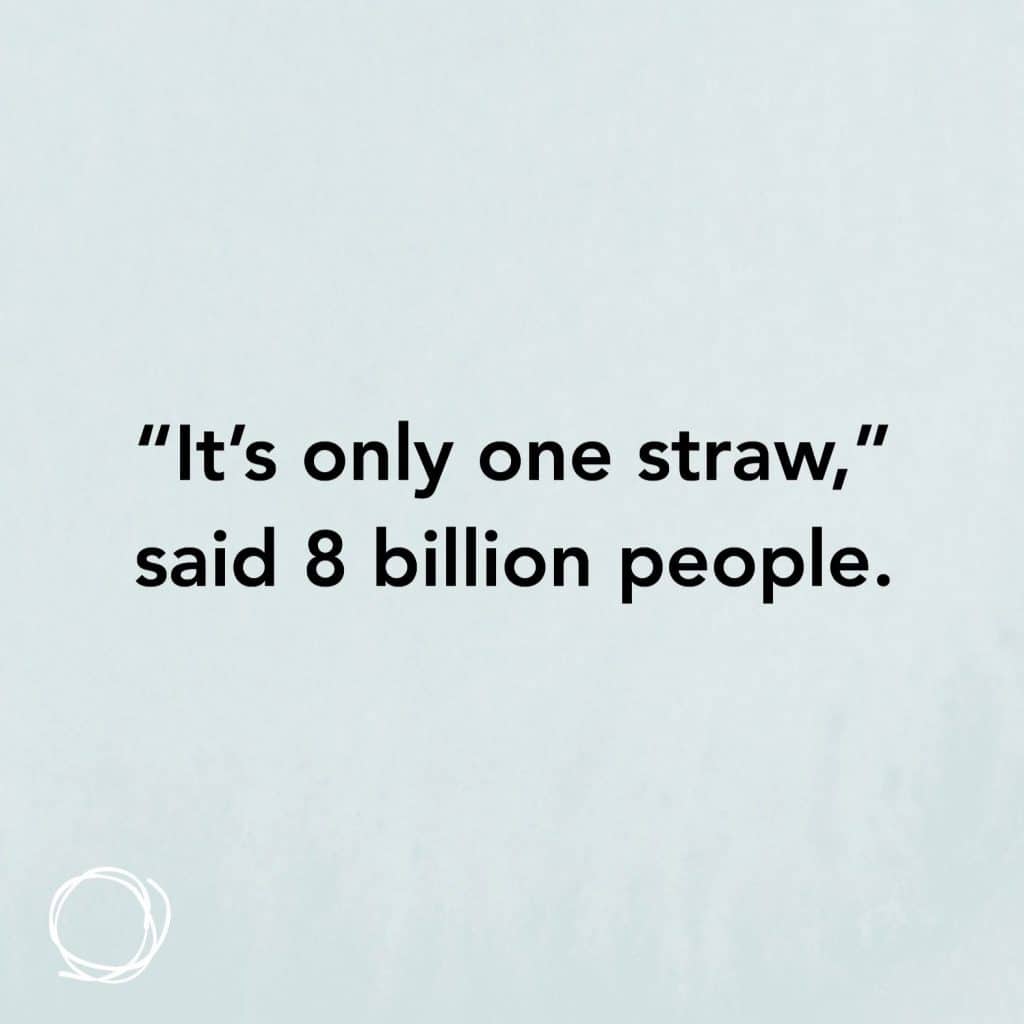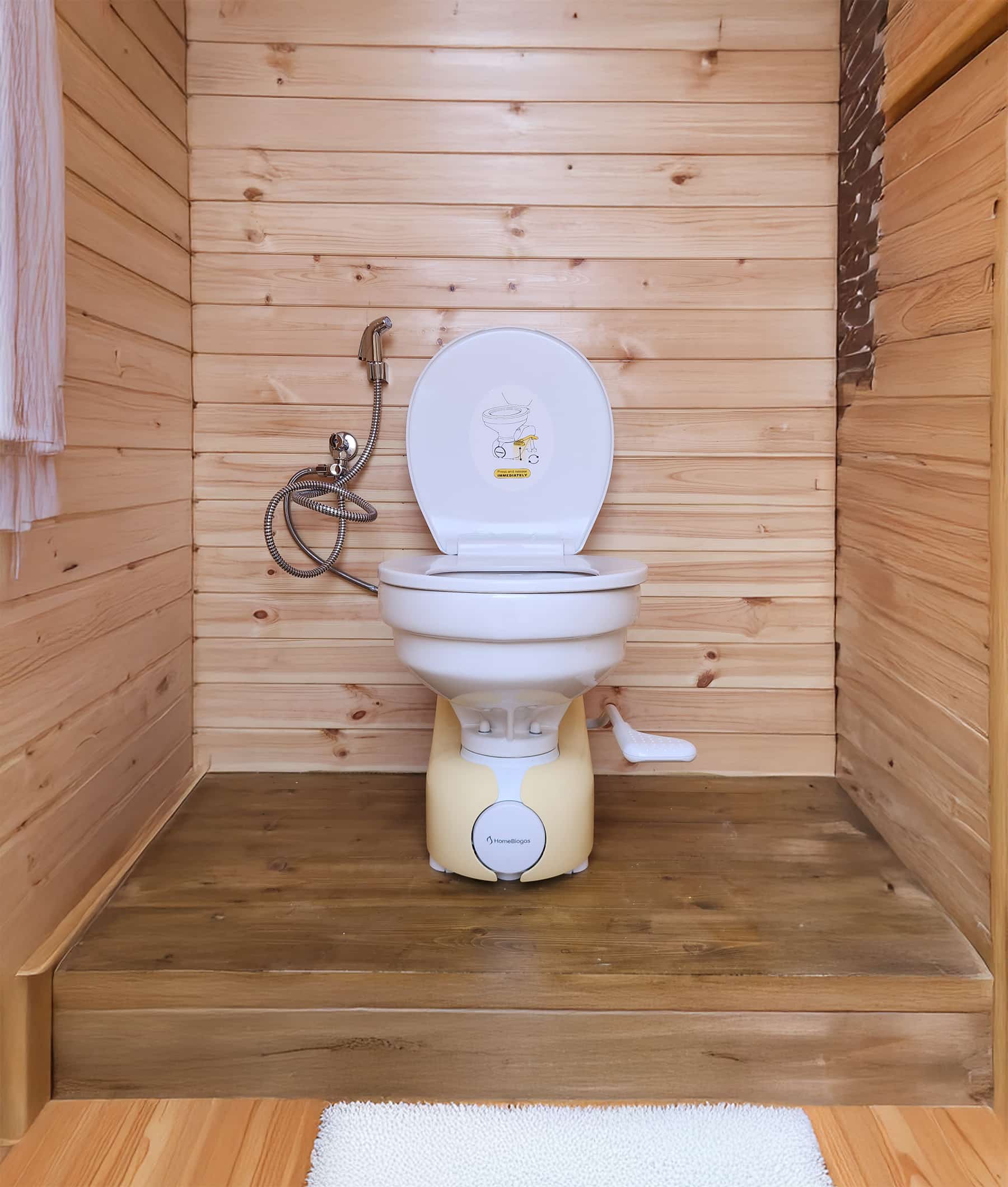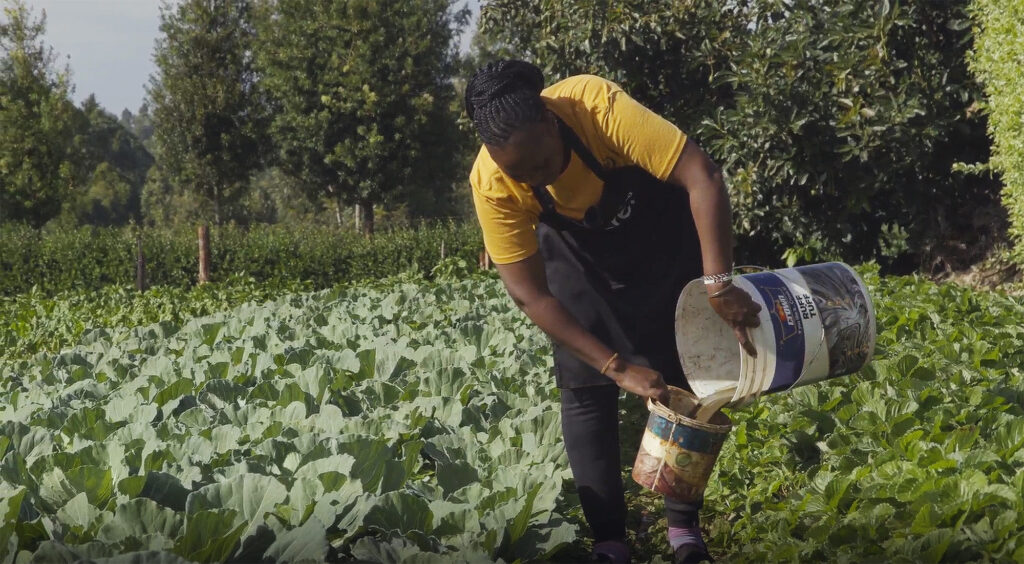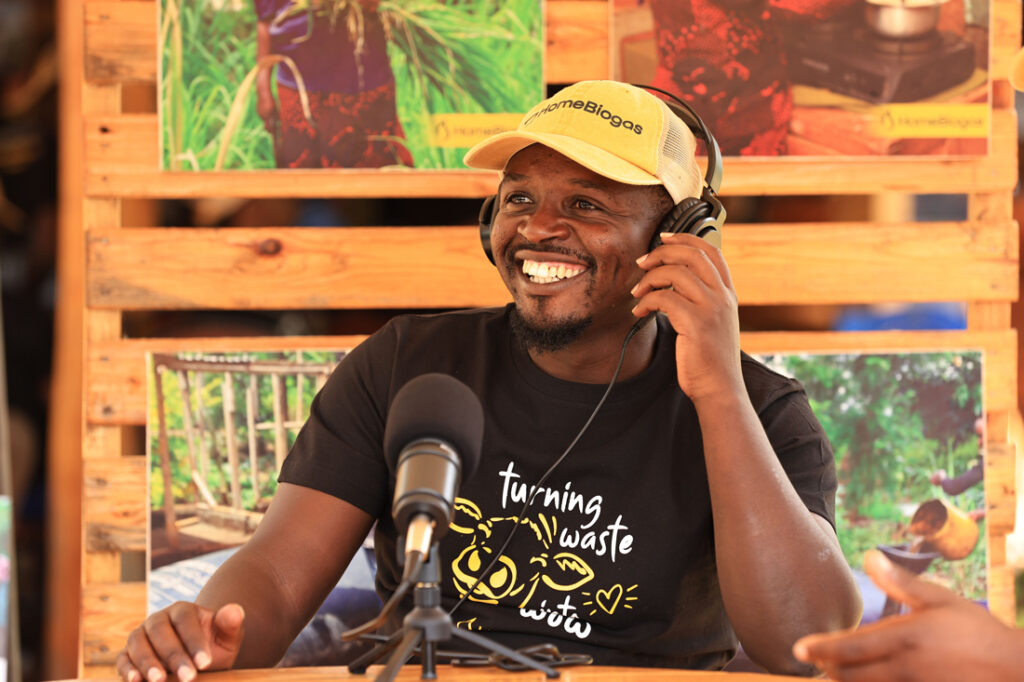
What Is a Sustainable Lifestyle?
A sustainable lifestyle can mean a whole number of things depending on your background, beliefs and intentions. For example, a sustainable lifestyle could mean:
- Becoming vegan, so as to modify your consumption of animal products
- Making greener choices around your home and outside your home, such as switching standard light bulbs for LED or CFL ones
- Changing your travel habits to cut your carbon footprint; such as by swapping your car for a bike
And so on. Living a sustainable lifestyle is more of a collection of practices that you undertake to reduce your personal impact (and therefore, society’s collective demand) on natural resources.

We’re all responsible for our planet. Living a sustainable lifestyle can mean as much as making a few different choices in your personal sphere (travel, work, consumer choices), or it could mean looking at the wider world and attempting to influence change, at a higher level.
Back in 2019, the UN’s General Assembly was alerted that, in just 11 years, the havoc wreaked by climate change would become irreversible.
It’s far easier to effect change from the bottom-up than the top-down, meaning the choices you make today, tomorrow and in the future to live a more sustainable lifestyle will have direct impacts on the planet.
And, these basic changes are so quick and easy to make, you’ll be wondering why you hadn’t been doing them for years.
Here are 10 quick and easy sustainable living tips you can start with today and stick with for tomorrow and beyond.
10 Easy Sustainable Living Tips
1. Effortlessly convert your waste to clean energy with HomeBiogas
It sounds almost too good to be true, but the HomeBiogas cooker is natural, waste-free and completely sustainable.
You might notice how much food waste you produce in a day, or a week. Other than recycling it into another meal (after all, who wants to eat that same pasta dish 3 days running?), or simply throwing it away, the HomeBiogas allows you to use it effectively.
All you need to do is collect all your food scraps (anything and everything), put them into the system (up to 12 liters daily), and use the machine to cook your next meal.
Sounds like magic? It’s an entirely natural process. Bacteria in the HomeBiogas dissolves the food into gas naturally, mimicking the process that happens in your digestive system, which then is used to power the stove.
And, an added benefit: the HomeBiogas can even generate liquid fertilizer that you can use in your garden! It’s a twofer, and completely sustainable.
2. Practice the art of minimalism
Take a look around your home. Is it messy, or cluttered? Pay attention to how you feel as you do so. Are you feeling calm and relaxed, or slightly anxious, stressed and even a little on-edge?
Your mountain of possessions might be stressing you out. As Joshua Becker of the uber-popular Becoming Minimalist blog puts it, he understood something had to change when, upon taking a whole weekend to clear out his messy garage, “I realized my belongings weren’t adding value to my life. Instead, they were subtracting from it.”
This realization triggered a whole flow of donating, recycling and removing anything deemed necessary or excess…with a mindset shift to “own less stuff” in the future.
Becker continues that this had an immediate positive impact: “We discovered we had more money, more time, more energy, more freedom, less stress, and more opportunities to pursue our greatest passions.”
Owning less means smarter buying choices. That means more than just more money in your pocket, it means fewer products bought and produced, far less waste, and so a more sustainable lifestyle, from the bottom-up.
That and, you’ll find your house is easier and quicker to clear, your family are more content with less, more gratitude and contentment.
3. Make smarter household choices: Groceries
Other than becoming more minimalist, making smarter buying choices when buying groceries and household items can also go a long way to building your sustainable lifestyle.
Some quick and easy switches you can make with your groceries could be taking note of how much you buy at the beginning of a time period (e.g., in a week), and how much waste is generated from that shop by that end of that time period. Then, you simply buy only what you need and use next time.
Other quick and easy practices you can implement are:
- Buy products with less packaging: so much waste is produced from unnecessary plastic, paper and other packaging. You can either make conscious choices to buy products displaying less packaging, or even bring your own reusable sacks and bags to the supermarket to back up your produce yourself.
- Use reusable bags. Keep them in your car, by the door, or anywhere you need to to make sure they’re easily grabbable if you’re going to get groceries. Plastic bags take over 500 years to decompose, and are responsible for killing marine life as a result.
- Avoid single use items. It’s tempting to try and avoid the washing up later, but in the long-run, those single use plates and cutlery are going to end up in a landfill, and won’t compose for thousands of years.
4. Make smarter household choices: Cleaning products
Cleaning products are a hidden, yet open, poison in your home. Filled to the brim with potentially dangerous chemicals (and not to mention a shameful amount of plastic), you can easily switch them from natural products around your home that are just as (if not even more) effective. Try seeking out –
- Reusable microfiber cloths to clean with, instead of despicable tissue or wipes. These can be cleaned in the washing machine for hundreds of uses.
- Use a combination of vinegar, baking soda, washing up liquid and laundry detergent for various household services. That bathtub’s limescale? Attack that with a vinegar and baking soda combination. Want your kettle to shine? Rub it with some vinegar. A quick Google can help you clean any and every surface in your household using these items far more sustainably.
5. Make smarter household choices: Lighting
Another hidden gem around your home is your lighting. Both by using your lights more effectively and by making some switches to your existing light bulbs will go a long way to increase your sustainable lifestyle, and even save you money!
- Swap your traditional, energy-wasting light bulbs to CFL lightbulbs, or even better: smart lights.
- Deploy your lighting effectively: would placing a lamp in the corner of the room give you more light than multiple spotlights above, for example?
- Always turn off the lights when you leave a room you’re not using, and keep rooms with lights on to an absolute minimum. You don’t need your entire house lit up like a Christmas tree all day, every day, after all!
6. Be more mindful with your travel plans and errands
When it comes to a sustainable lifestyle when traveling, there’s quite a range of possibilities open, depending on how much or how little you’re willing to change your habits. Not everyone will be able (or even willing to) swap their car for a bike, for example, but even so there are a whole range of other options available.
- Use public transport when you can, or even switch your car use for public transport for one day a week.
- Upgrade your car to a hybrid model.
- Plan your day effectively so you can make one trip for all of your errands, instead of more, separate ones.
- Try carpooling if and when you can.
- Take the stairs when you can (and, as an added bonus, you’re getting some exercise!).
7. Unplug your devices
This one’s super simple: unplug your devices when they’re not in use.
For this tip, you might need a little more explanation: some of the bigger devices, or those that need to be constantly plugged in (think fridge and freezers) you won’t be able to apply this to…but the possibilities for other devices you can easily unplug are endless!
To assess just how much energy (and money!) you could save by unplugging consider the actual amount of time you use a plug, compared to how long something is plugged into the socket. Think about things like –
- A standing lamp, plugged in 24/7, actually in use maybe 3 or 4 hours a day
- Your mobile phone charger, plugged in 24/7 but actually in use around 2 hours a day
- Your TV, laptop and other devices – plugged in 24/7 but actually in use around 5-9 hours a day.
Unplugging is so important as your devices still use electricity, even when they’re not switched on! By mindfully unplugging, you’ll be amazed at how much energy and money you’ll be saving on your utility bills!
8. Share, buy second hand or borrow
Following on from the minimalist living tip, you’d be amazed at how much is available to you secondhand, shared, or borrowed. After all, you most likely don’t need something new each and every time, if you really think about it.
For example –
- Books and magazines can easily be swapped and borrowed from friends, or your local library
- Big items, such as lawnmowers, video equipment or otherwise can easily be borrowed from another person. Buying your own new versions of these means all they’d do is sit and gather dust while awaiting their next use.
- Swap clothes with other people of similar sizes, or check out second hand shops if you’re looking for something ‘new’.
- Learn to sew, to patch up holes or sew buttons back on, giving your old clothes a new lease of life!
9. Gift smarter
Who hasn’t been totally thrown off by an upcoming celebration when it comes to gift giving? Not only is it super tricky to work out what to buy, but the chances are you’ll be spending money unnecessarily on something the receiver doesn’t want, need or will only accept out of politeness.
Getting smart with your gift giving can easily help you build a more sustainable lifestyle for yourself and the gift receiver and all it takes is a few smart questions, such as:
- Talking in terms of experiences or needs. Ask the receiver if there’s an experience they would absolutely love to do, or what they’d really want to receive.
- Buy services: the receiver might love to receive a visit from an (eco-friendly) cleaning company, babysitter, masseuse or otherwise!
- Donate to charity in the person’s name. Who doesn’t love ‘paying it forward’?
- Make a home-cooked meal, or baked goods.
If you absolutely have to buy a physical gift, you can choose to wrap it in sustainable or recycled paper/gift bags, and even buy or make a sustainable card to accompany your gift!
10. Wardrobe audit, and buy second hand
We all have too many clothes, and if you don’t believe that, then simply turn all of your clothes around on their hangers, replacing them the right way when you actually wear them. Now see how many are still reversed.
Owning too many clothes is a source of frustration and overwhelm in the morning, which is why several high-profile figures wear the same uniform daily.
When it comes to sustainable living via your clothing choices, there are some easy options awaiting you:
- Audit your wardrobe and donate what you don’t use or need.
- Buy second-hand clothes, or swap with friends.
- Buy higher priced items, as these will last longer and you’ll buy fewer clothes as a result.
- Buy clothes from sustainable clothing companies.
The Bottom Line: How to Live a Sustainable Lifestyle
As you can see, living a sustainable lifestyle is actually pretty easy. You can do it in your own way, and go as hard or as light at it as you like!
Start living sustainably today, and help save our planet for tomorrow!






